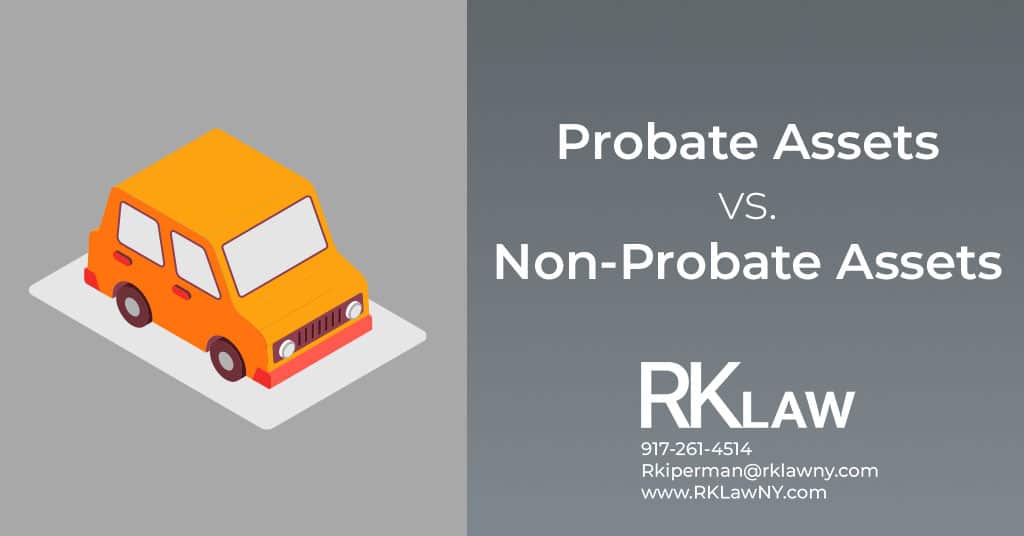People often confuse nonprobate assets and probate assets. They also often confuse taxable vs. non taxable assets. Probate assets are those that do not have a beneficiary designation. They are assets that were either not capable of being held jointly or were not held jointly. Sometimes people intentionally create probate assets by removing a beneficiary designation because they want that asset to be disposed of by the terms of the Last Will and Testament or by the terms of the Trust.
What are Non Probate Assets?
Non-probate assets are those that do not follow the terms of a Will or Trust, or, intestacy, in the absence of a Will or trust. A non-probate asset immediately passes to the named beneficiary or co-owner upon the death of the first person. Non-probate assets are those that already have a beneficiary designation, or, those that have a “payable on death” or “transfer on death” clauses. Non-probate assets tend to be Retirement accounts. Spouses tend to hold deeds to their houses as “husband and wife” or “joint tenants with rights of survivorship,” which means that upon the death of the first spouse, the real property automatically passes to the survivor. Unless there was fraud, duress, coercion, undue influence, or incapacity, a beneficiary designation in place at the time of the decedent’s death overrides the terms of the Will.
Chart of Probate Assets v NonProbate Assets
| Common Examples of Probate Assets | Commons Examples of Non Probate Asset |
| Jewelry | Retirement Account(s) with Beneficiary Designation (IRAs, 401ks, Annuities) |
| Furniture | Co-owned U.S. Savings Bonds |
| Automobiles | Pension Plan Distributions with Beneficiary Designations |
| Stock Certificates held in Book Entry Form | Joint Ownership with Right of Survivorship |
| Interest in a Corporation or LLC where Decedent was the Sole Owner (and likely did not create an operating agreement to discuss succession) | Life Insurance |
| Checking Account (most banks do not allow you to put a beneficiary designation on a checking account) | Trust Funds (Revocable or Irrevocable) |
| Money Market Accounts (where individual forget or intentionally did not place a beneficiary designation) | Assets with a Life Estate |
When an individual dies, it is important for the nominated executor, or, next of kin, to review all of a decedent’s assets to determine whether they are probate or non-probate. We can help you review all papers and file the Probate/Administration petitions with the Court.
For more information, please contact NYC Probate Litigation, Guardianship, NYC Probate and Estate Planning attorney Regina Kiperman:
Phone: 917-261-4514
Fax: 929-556-2089
Email: rkiperman@rklawny.com
Or visit her at:
40 Wall Street
Suite 2508
New York, NY 10005
Visit Regina on LinkedIn
Visit Regina on Facebook
This page is made available by the lawyer for educational purposes only as well as to give you general information and a general understanding of the law, not to provide specific legal advice. By using this site you understand that there is no attorney client relationship between you and the lawyer. The post should not be used as a substitute for competent legal advice from a licensed professional attorney in your state. ATTORNEY ADVERTISING.
